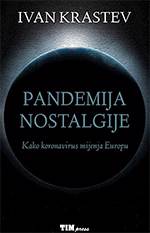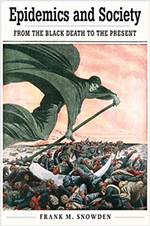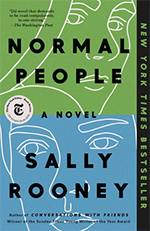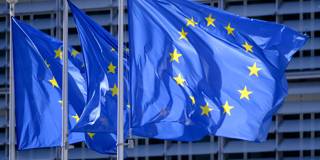Mark Leonard
Says More…
This week, PS talks with Mark Leonard, Director of the European Council on Foreign Relations.
Project Syndicate: You have indicated how European integration “could serve as a backstop for national sovereignty, rather than posing a threat to it.” You suggest that a similar approach is needed beyond the European Union, with today’s multilateral frameworks being “brought back into the service of national sovereignty.” How might this be achieved?
Mark Leonard: As I discuss in my forthcoming book Age of Unpeace (forthcoming in May 2021), the big story of the twenty-first century has been that many of the things that were supposed to bring us together have actually been driving us apart. Global trade, migration, and the Internet were expected to create wealth and opportunities for all. But, to whatever extent they fulfilled that promise, they have also led to escalating trade wars, skyrocketing inequality, and cyberattacks.
In the past, multilateral institutions have taken a neoliberalism-infused approach to managing globalization. They sought to reduce the role of national governments and left ordinary citizens at the mercy of powerful entities, unable fully to govern their own lives. As inequality has surged, a growing number of people have gotten the sense that globalization has spiraled out of control. This has produced a far-reaching political crisis, fueled by the desire to “take back control.”
Leonard recommends
We ask all our Say More contributors to tell our readers about a few books that have impressed them recently. Here are Leonard's picks:
-

Is It Tomorrow, Yet? Learning to Live with the Unthinkable
by Ivan Krastev
This essay shines a light on the paradoxes evident in COVID-19’s impact on European politics. Krastev shows how European elites risk getting the pandemic wrong, because they are looking at it through the lens of the refugee crisis, the euro crisis, and the global “War on Terror.” If Europe’s leaders read the COVID-19 crisis correctly, however, it can bring about a “European moment.”
-

Epidemics and Society: From the Black Death to the Present
by Frank M. Snowden
This sweeping account of past pandemics reveals their social, economic, and political consequences. Written before the COVID-19 crisis began, Snowden’s book has done more to help me make sense of the outbreak’s progression than hours spent reading the latest updates on the Internet or watching the news.
-

Normal People
by Sally Rooney
Social-distancing protocols during the pandemic have spurred many of us to reflect on the connections that are central to our lives. This touching coming-of-age novel explores the shifting power dynamics in human relationships.
From the PS Archive
From 2018
Leonard explains how, using a combination of carrots and sticks, Europe can save the Iran nuclear deal. Read more.
From 2017
Leonard showed how the German and French governments could avoid past mistakes and cooperate effectively. Read more.
Around the web
In this European Council on Foreign Relations policy brief, Leonard identifies three ways the pandemic is changing UK politics. Read the brief.
In his podcast, World in 30 Minutes, Leonard presents the newest edition of the ECFR’s Coalition explorer, and together with policy fellows Ulrike Franke and Pawel Zerka, analyzes the collected data. Listen to the discussion.
